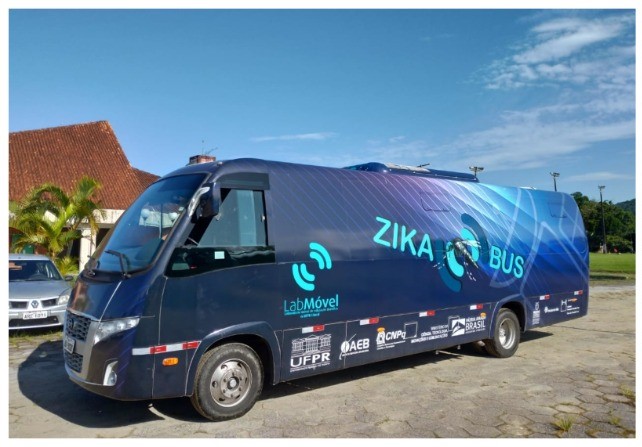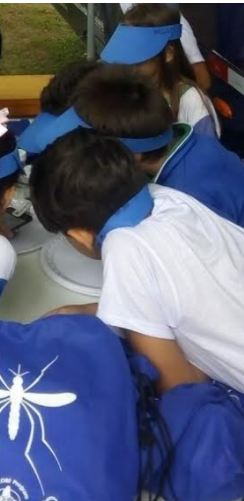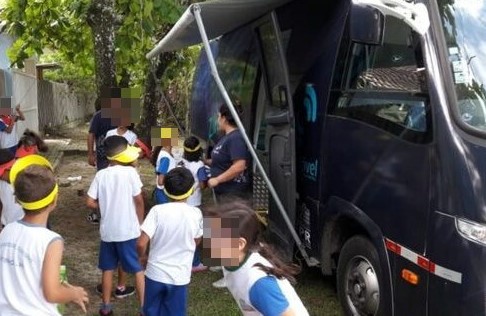Stars and STEM Stories
“Zika Bus” Helps Students “Think Beyond School Walls” in Brazil


In the depths of the COVID-19 pandemic, a “Zika Bus” is assisting teachers in the Paraná Brazil area share GLOBE protocols with public school students – helping them to “think beyond school walls.”
Lucas Raoni Prado de Farias, a science teacher living in Matinhos city of Paraná at Brazil, currently working toward his Master’s Degree in Teaching Environmental Science at the Universidade Federal do Paraná (UFPR), has been partnering with LabMóvel (a mobile science education laboratory of UFPR) since March of 2020.
“Because of the COVID-19 pandemic, I’m doing remote classes with some teachers who want to apply the GLOBE protocols at public schools on Paraná’s coast,” Lucas said. “LábMóvel made a bus to go to schools to demonstrate how Aedes aegypti lives, procreate, and how it spreads disease, like Dengue Fever, Chikungunya, and the Zika Virus. This bus goes to public schools to work with students so we can teach them the GLOBE protocols.”
The goal is to have two teachers capable of teaching the protocols at public schools in each city of Paraná’s coast. “At first, we invited a lot of schools, about 14, but right after COVID-19 came to Brazil and, according to the World Health Organization, all school activities were paused. Since then, we are doing classes with diverse GLOBE protocols, teaching teachers who want to use those protocols in their schools and apply citizen science at school daily. Now, we apply one class on the mosquito protocol. The second will be about clouds and atmosphere science, from 18 to 20 November 2020.”

“As a science teacher,” Lucas said, “it is very important to show to our students how all discipline is connected, and how all of us can be whatever we want to be, even a scientist without graduation. Also, these projects will help me to write my Master’s dissertation, which will tell about citizen science and science argumentation.”
“When we get all the teachers we want, we will get a lot more data on mosquitos in Brazil, and other data that GLOBE protocols collect – and we will have a better diagnostic sense of Paraná’s Coast,” Lucas said, adding that the goal is to use citizen science to help students “think beyond school walls.”
This Star Story was submitted by Lucas Raoni Prado de Farias
Mestrando do Programa de Pós-Graduação em Rede Nacional para Ensino das Ciências Ambientais (PROFCIAMB)
Universidade Federal do Paraná - Setor Litoral





